MONTREAL – A little-known connection between Canada and Abraham Lincoln’s assassin will quietly mark an anniversary this week: it’s been 150 years since John Wilkes Booth hobnobbed with Confederate leaders in Montreal.

Six months after Booth’s October 1864 visit, he shot the president in the back of the head.
Clues have pointed to Booth’s mysterious trip to Montreal as a precursor to Lincoln’s April 1865 assassination in a Washington theatre. At the time, the pro-Southern cause enjoyed considerable sympathy in Montreal, which was also known as a haunt for agents of the Confederacy.
“What was always in dispute was whether the guys in Canada were involved in a concrete way.”
Conclusive evidence, however, tying the murder plot to Booth’s nine-day Montreal stay was never established by authorities.
“Booth was definitely in and out (of Montreal), and he may well have discussed this plan, but they were never able to nail it,” said Adam Mayers, who authored Dixie & the Dominion: Canada, the Confederacy and the War for the Union.
“What was always in dispute was whether the guys in Canada were involved in a concrete way in the conspiracy to assassinate Lincoln and, of course, that was never proved.”
But even without a confirmed Canadian link, evidence did emerge that suggested Booth’s Montreal mingling six months earlier might have laid the foundation for the murder.
Booth’s Montreal connection
History books recall how the prominent American actor checked in on Oct. 18 at the prestigious St. Lawrence Hall, an Old Montreal hotel widely known as the Confederacy’s Canadian headquarters.
Following Lincoln’s death, witnesses alleged they had seen Booth chatting up Confederate officials and heard him expressing open contempt for Lincoln.
In one example, Booth’s remarks over a game of billiards in the hotel’s saloon suddenly became significant six months later, Clayton Gray wrote in his 1950s book, Conspiracy in Canada.

Get daily National news
“It makes little difference, head or tail,” Booth, who had been “drinking freely,” allegedly told his opponent while they discussed the upcoming November 1864 presidential elections.
“Abe’s contract is near up, and whether re-elected or not he will get his goose cooked …”
“By … I like our Canadian style. I must post myself in Canuck airs, for some of us … may have to settle here shortly.”
Authorities also learned of an earlier plot to kidnap Lincoln, a conspiracy that witnesses later alleged would be led by Booth. He seemed to allude to the kidnapping plan over that same game of pool.
“Do you know, I have got the sharpest play laid out ever done in America,” Booth said in comments later reprinted in newspapers.
“I can bag the biggest game this side of … just remember my address … you’ll hear of a double carom one of these days.”
Blood money from Canada?
Booth also left behind Canadian money with a mystery of its own.
When authorities cornered and killed Booth in Virginia a couple of weeks after the assassination, he was carrying a bill of exchange from Montreal’s Ontario Bank and dated Oct. 27, 1864.
A bank book from the same institution, stamped with the same date, was also discovered among his belongings.
“He cashed out all kinds of money and he had a banker’s draft when they captured him,” Mayers said.
“He had that in his pocket, which is why everybody called it a Canadian connection to the assassination.”
Through his bank account, Booth’s link to Montreal endured after he himself was gunned down.
His account at the Ontario Bank, an institution acquired by the Bank of Montreal in 1906, stayed open with a balance of $455 for an undetermined length of time following his death.
“The (Booth) family refused or didn’t want to have anything to do with that account,” BMO spokeswoman Jessica Leroux wrote in an email, attributing the information to a 1967 book by the bank’s historian, Merrill Denison.
Leroux said the cash had been described anecdotally over the years as “blood money.”
Jacob Thompson, chief of the Confederate secret service in Canada, also kept an account at the Ontario Bank. Witnesses testified at the trial of the Lincoln assassination conspirators that Thompson had been spotted with Booth at the St. Lawrence Hall.
“Spies and bystanders could hardly miss the fact that John Wilkes Booth, a noted celebrity, was talking to the Confederacy’s senior men,” author Michael W. Kauffman wrote in his book, American Brutus: John Wilkes Booth and the Lincoln Conspiracies.
“What he did (in Montreal) is still a matter of dispute. Witnesses in 1865 told of seeing Booth with various officials, talking openly about their plot against Lincoln.
“Not everyone has taken this testimony at face value; after all, it described a level of recklessness that defied common sense.”
Why Montreal?
Confederates used Montreal as a base during the American Civil War because of its sophistication and good communications network, Mayers said.
He added that many of them liked to escape the sweltering summers of the U.S. South by vacationing in Quebec’s Eastern Townships.
“They hated Yankees.”
In Canada, the Southerners also enjoyed sympathy from the public.
“They hated Yankees,” Mayers said of Canadians, who viewed New Englanders as aggressive and expansionist.
In his book, he wrote of Booth’s own popularity in the city and how the actor “electrified” Montreal audiences in October 1864 with his readings of Shakespeare’s Merchant of Venice and Tennyson’s ”Charge of the Light Brigade” at Corby’s Hall.
But even with support for the South in Montreal, the city, and Canada, offered a huge outpouring of sympathy following Lincoln’s assassination.
Lincoln himself still has a footprint in Montreal nearly 150 years after his death.
McGill University houses the Joseph N. Nathanson Collection of Lincolniana, believed to be one of the biggest Lincoln exhibitions outside the U.S. It features Lincoln-related items such as images, pamphlets and sculptures.
Among the objects on display is a piece of cloth the attending doctor wrapped around Lincoln’s head after Booth shot him.
It is still stained with the president’s blood.

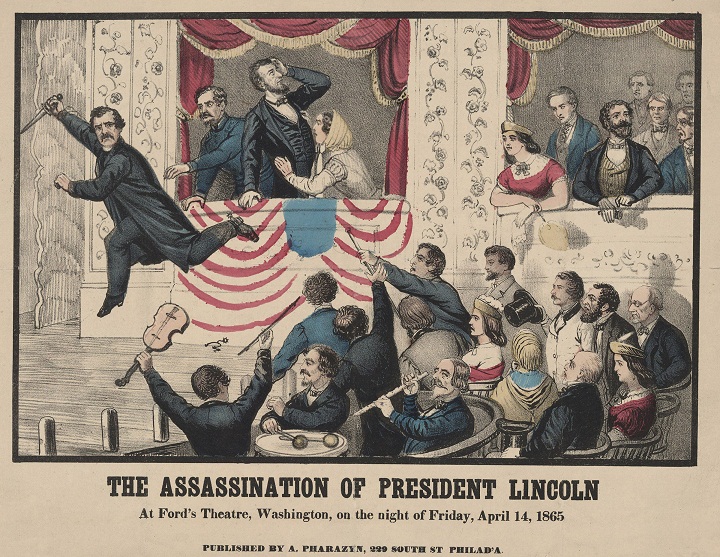

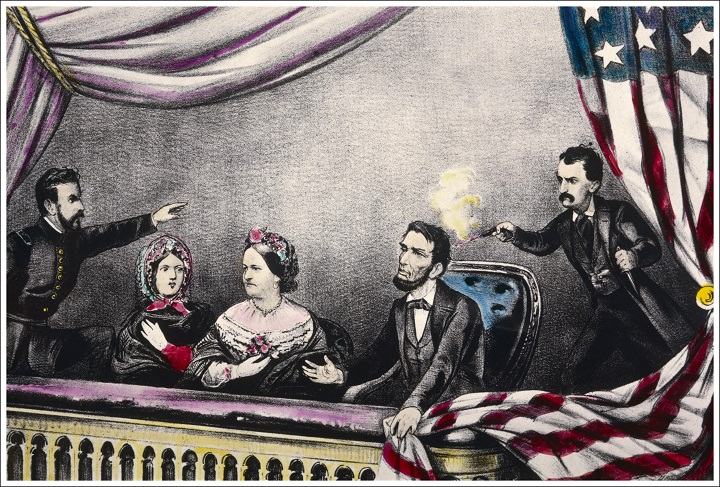

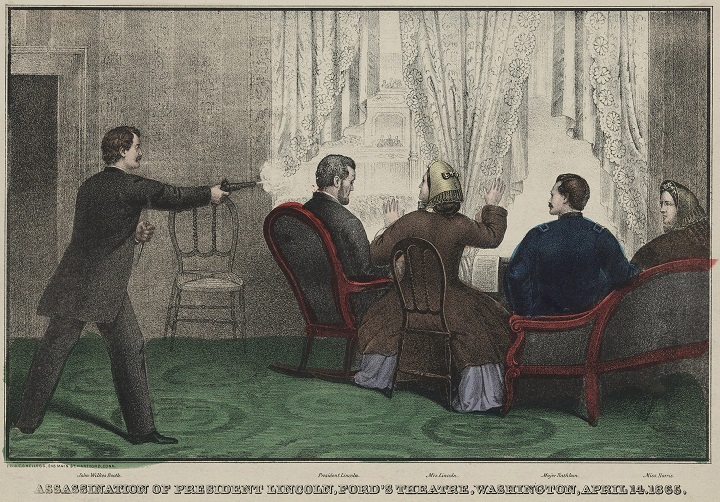

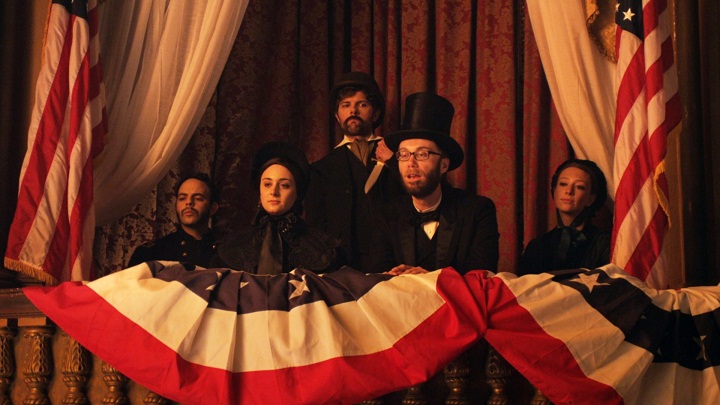

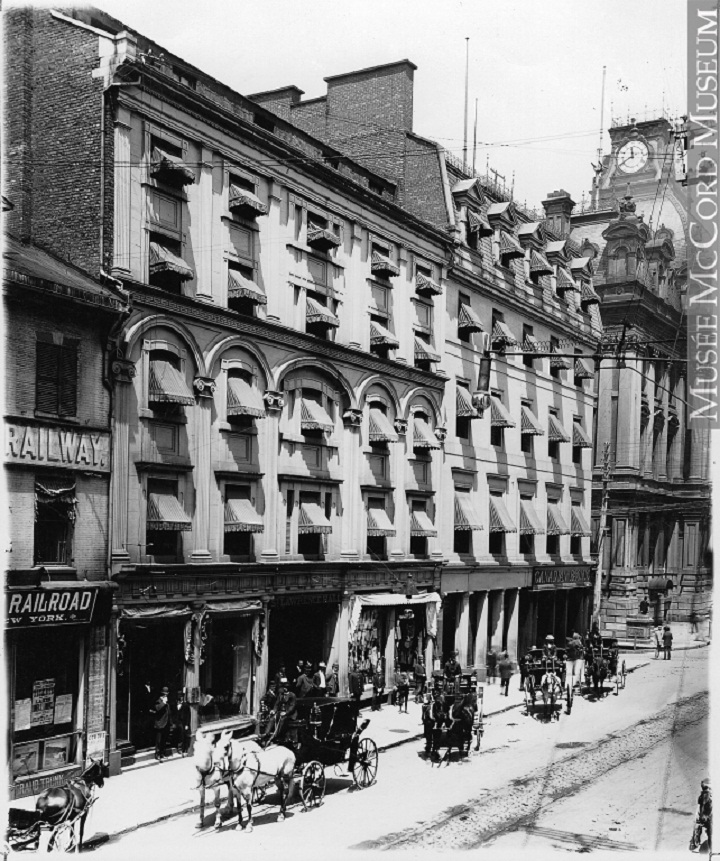

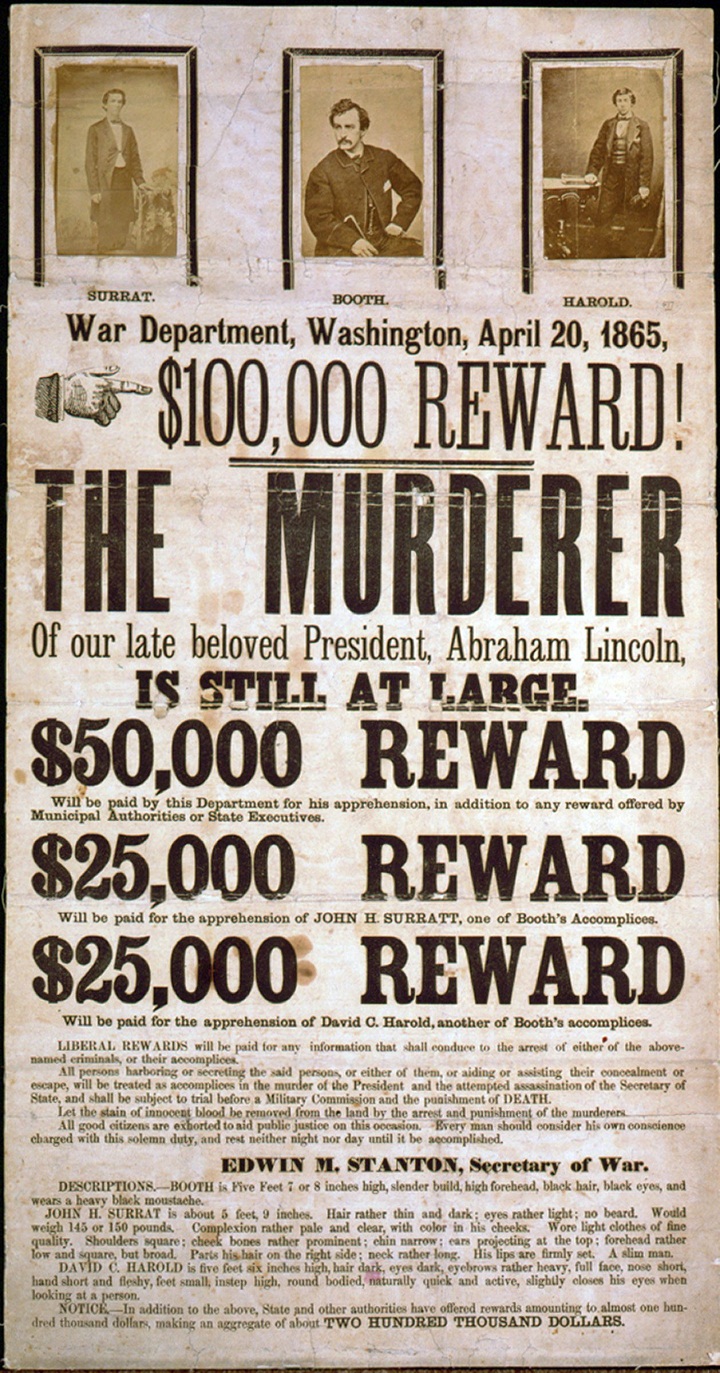
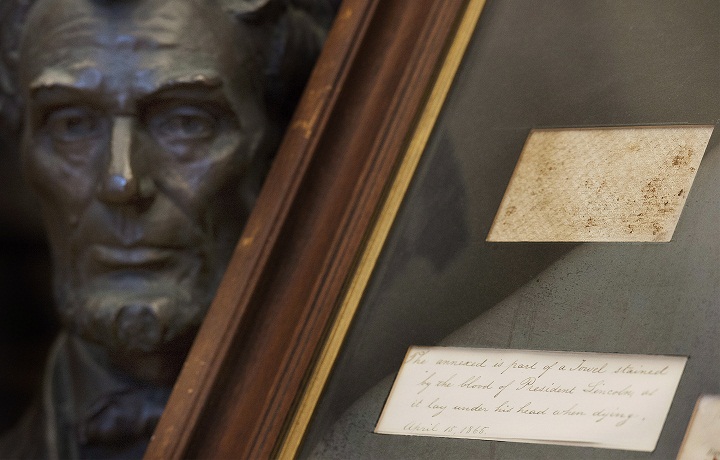
Comments